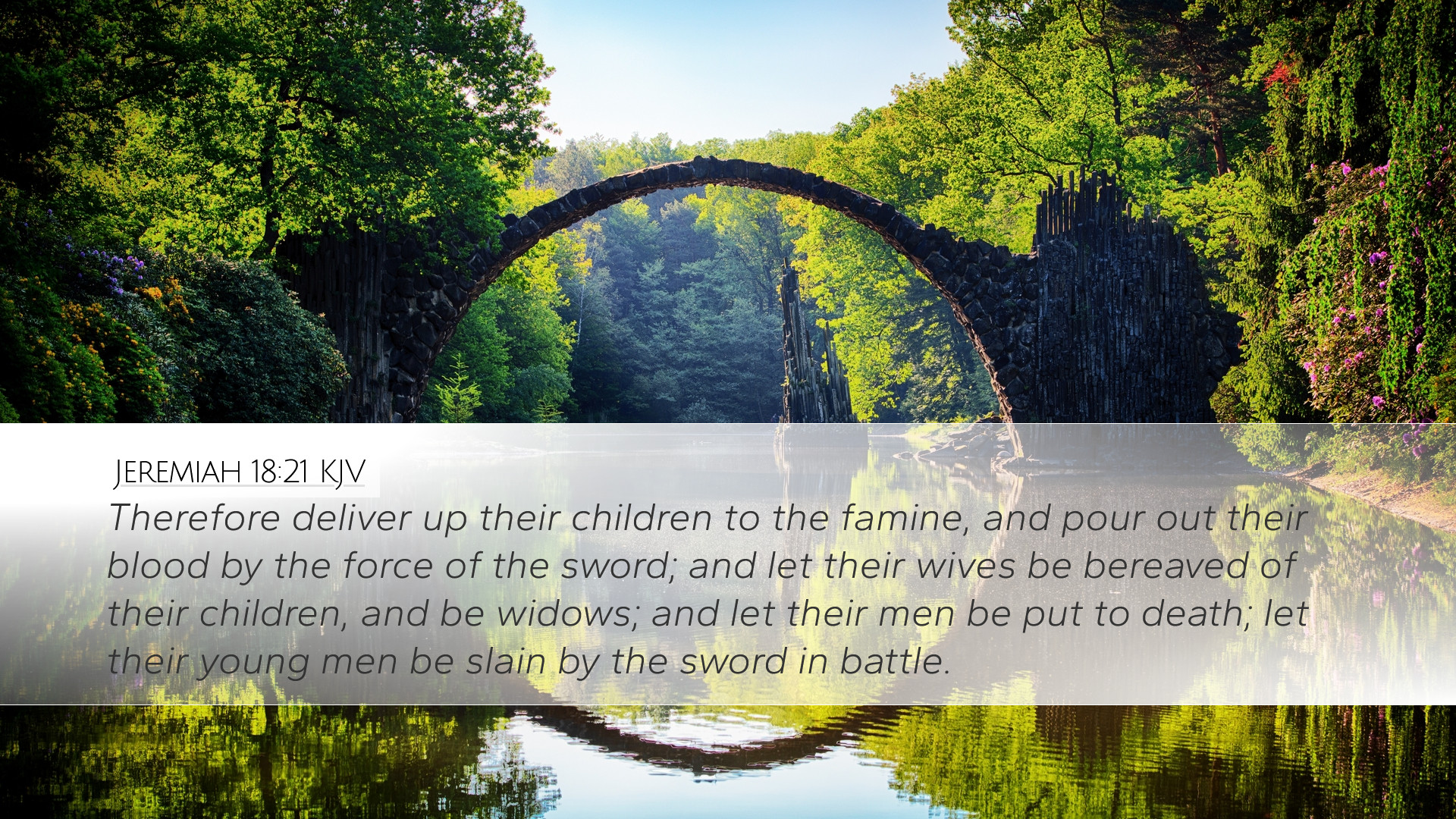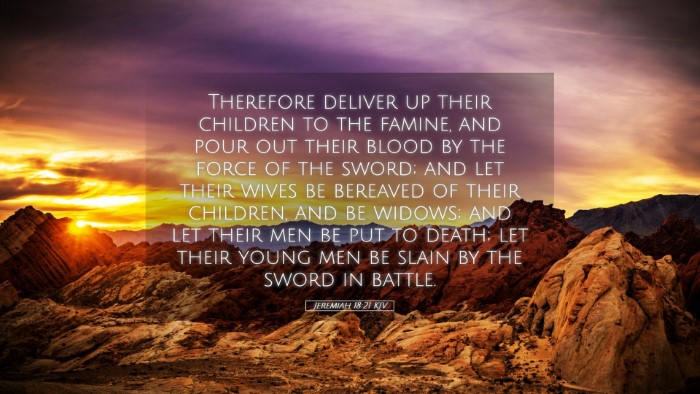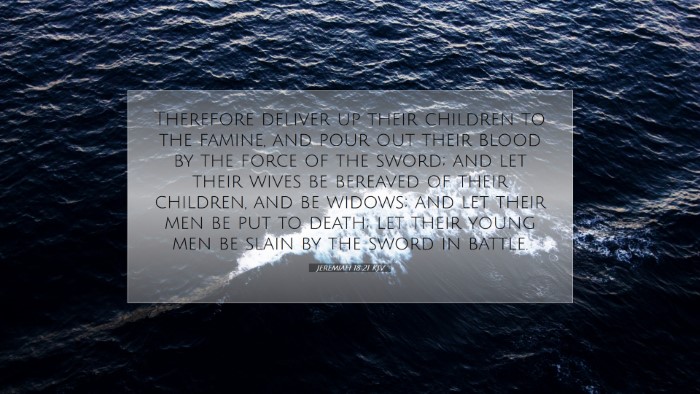Commentary on Jeremiah 18:21
Jeremiah 18:21 states: "Therefore deliver up their children to the famine, and pour out their blood by the force of the sword; and let their wives be bereaved of their children, and be widows." This verse is situated within a prophetic context, reflecting the severe consequences of Israel's continued sin against God and their rejection of divine guidance.
Contextual Overview
This passage comes during a tumultuous period in Israel’s history, where the nation faced impending judgment due to its iniquities. This judgment, represented through violent imagery, emphasizes the dire reality of divine retribution as a result of persistent disobedience. The portrayal of widows and famine evokes a deep sense of loss and suffering, illustrating how far the nation has strayed from the covenant relationship with God.
Insight from Matthew Henry
Matthew Henry emphasizes that this verse is a sobering reminder of God's justice. He notes that the destruction of the children, wives, and the pouring out of blood signify the complete devastation that will ensue as a direct consequence of their sins. He urges readers to comprehend the seriousness of offending a just and holy God, whose patience has limits. Henry states:
"God's judgments are often executed in the most distressing forms upon families and societies, showcasing that sin has consequences that extend beyond the individual."
Insight from Albert Barnes
Albert Barnes comments on the prophetic nature of this verse, focusing on its illustrative meaning rather than literal execution. He interprets this as God's warning through Jeremiah about the potential fates that await those who oppose His will.
"The metaphor of children being delivered to famine and violence drastically illustrates the total breakdown of society and emphasizes the reality of divinely ordained justice."
Barnes highlights the importance of interpreting this judgment within the larger narrative of God’s mercy and grace, suggesting that even amidst judgment, the opportunity for repentance remains.
Insight from Adam Clarke
Adam Clarke offers another layer of insight into the nature of divine judgment presented in this verse. He articulates how the lamenting images also reflect God's sorrow over His people's choices. Clarke elaborates on how divine justice does not bring God joy:
"These expressions are not indicative of God's delight in punishment but demonstrate the heartbreaking consequences of sin in a fallen world, even for those whom He loves."
Clarke stresses the duality of God’s nature—His righteous judgment paired with His passionate desire for His people to repent and return to Him.
Theological Implications
Jeremiah 18:21 serves as a critical reflection point for contemporary readers. It raises essential questions about the nature of God's justice and mercy. The judgments depicted serve as a warning to both individual believers and the church at large about the consequences of turning away from divine guidance.
- The seriousness of sin: This passage illustrates that sin has far-reaching implications, affecting the lives of many, including the innocent.
- The urgency for repentance: The imagery should urge individuals and communities to seek restoration with God before judgment falls.
- The character of God: Readers are reminded of God’s holiness and the need for humanity to approach Him with reverence and acknowledgment of His authority.
Application for Pastors and Theologians
For pastors, this scripture can serve as a powerful tool for preaching about the necessity for both personal and corporate repentance. It provides an opportunity to discuss God's justice and mercy, highlighting that while God does punish sin, He continually offers paths for restoration.
Theologians may find value in exploring the balance of God's wrath and love as exhibited throughout scripture. This verse invites critical examination of the implications of divine justice in a broken world without undermining the overarching narrative of redemption found in Christ.
Conclusion
Jeremiah 18:21 reveals a profound warning against the backdrop of divine judgment. Through the insights of foundational commentaries, modern readers are challenged to recognize the gravity of sin while also embracing the hope that restoration through repentance is always available. Pastors, students, and scholars alike can glean from this powerful verse a call to awareness of the consequences of sin and the loving invitation to return to the heart of God.


